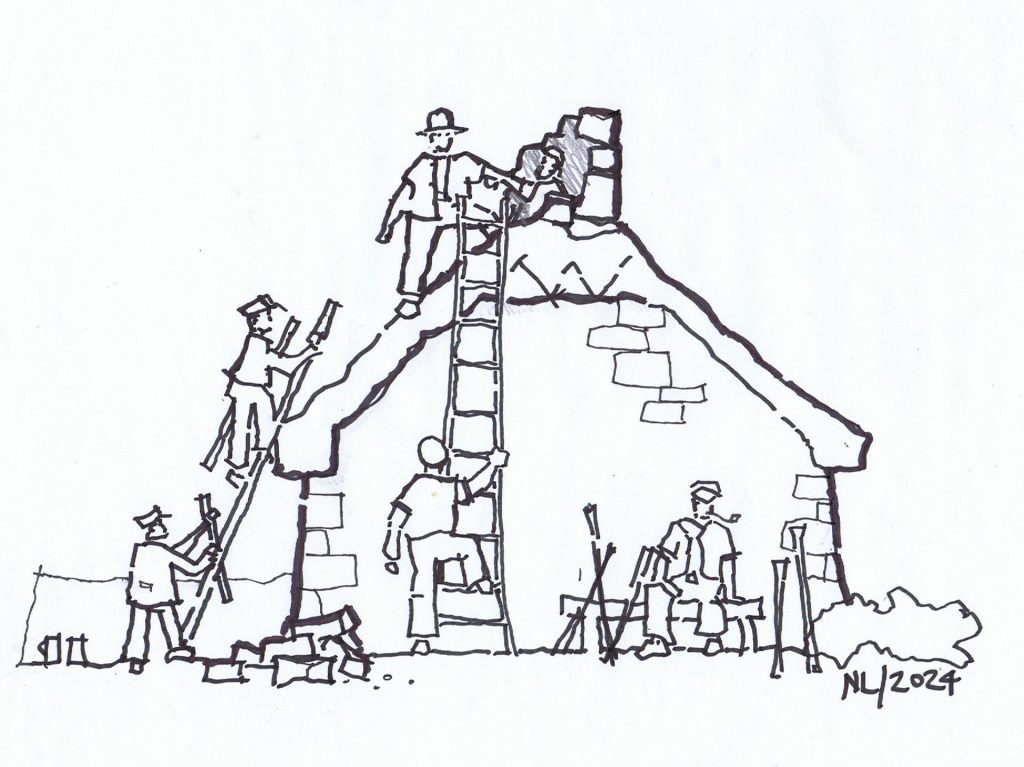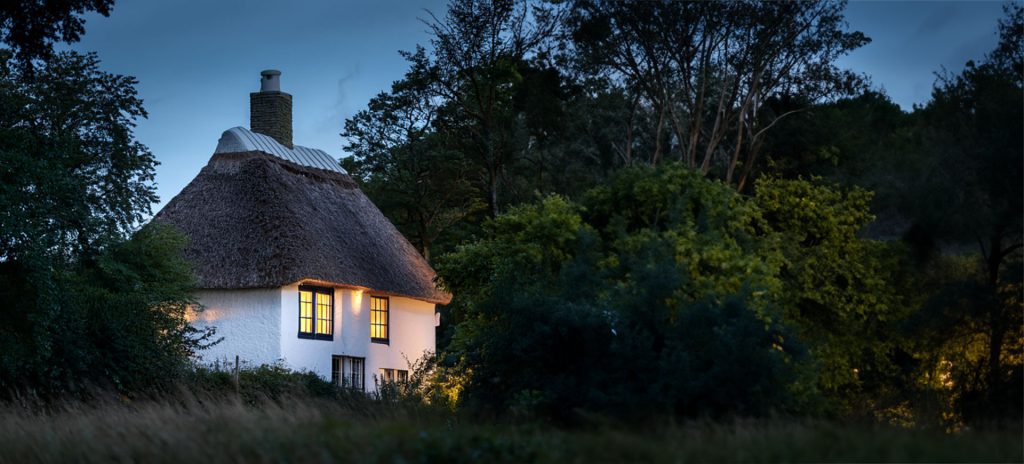Gabalva Lodge: A tight squeeze
By Nigel Lewis
The fourteenth of April 1865 is burned into the psyche of most Americans. It is the date of the assassination of Abraham Lincoln, president of the USA.
Just six weeks before, in February 1865, the Cardiff Times newspaper reported on a (not so quite momentous) event in Llandaff North. Back then it would have been called Llandaff Yard.
160 years ago, a Friday night, pay-day for most folk, a ‘young man’ as the newspaper reported him, had been drinking in some of the local pubs.
He’d obviously had a great time as (in his drunken state), he got lost walking home to his lodgings from the last pub, and he had become disorientated.
Llandaff Yard was still very rural, and there weren’t many cottages of any sort in the area at the time. He must have been very much the worse-for-wear. It was lucky he hadn’t fallen into the canal, and was stumbling along, in the pitch black, in completely the wrong direction.
In the distance, he saw the vacant cottage Gabalva Lodge, which was miles from anywhere.
The ancient cottage was single storey, with a thatched roof. The stone walls were probably whitewashed so would have had an eery glow in the darkness. Then there were the tiny windows and a thick boarded door. Nothing like any of the more recently-constructed houses in the area.
He convinced himself, in his drunken state that this must be his lodgings, so he tried to get in. There was no answer to his knocking (we’re told that the cottage was vacant), the front door was securely locked, and the windows fastened tight.
There was only one way to get in – to climb up onto the roof and to lower himself down the chimney.
It’s amazing how you can convince yourself when you’re in such a state. Somehow, he climbed up onto the thatched roof and struggled up to the ridge. The stone chimney must have been of generous size, as he thought it large enough to lower himself down.
Feet first, and getting a purchase on the sooty stone interior, he began to lower himself into the chimney, only to find himself stuck part way down. I’m sure he tried to free himself, and when that didn’t work, to try to climb back out.
It must have been a sight. Coat tangled, arms high, and everything covered with soot. The more he tried to free himself, the worse it got.
He couldn’t move, and there was no one to hear his drunken shouts for help.
It wasn’t until lunchtime the next day, a man and his wife arrived at the vacant cottage to see whether it was suitable for them to rent.
As soon as they got in, they heard the moans and groans coming from the fireplace.
‘O Jesu Mawr’, groaned the quickly-sobering trapped youth. This frightened the life out of the couple, and they ran off.
The husband, being a little braver than his wife, ventured back a little later to discover that it wasn’t a ghost, but a man stuck up the chimney. He clearly tried to get him free by pulling on his dangling legs, but to no avail.

The sketch shows what they were up against, even with ladders and crowbars. The young man was so stuck that there was no option but to begin demolishing the chimney.
It was only then that the rescuers realised that the stuck man, covered with soot was one of their workmates. They could hardly contain themselves, and laughed so much that they almost fell off the roof.
He had the sense to run across to the College Ironworks on the other side of the canal to find some men who could help to pull him out.
What a nightmare for the trapped man. How would he ever live it down?
The Cardiff Times never revealed the young man’s name (probably just as well), but you can only begin to conjure up some of the nicknames he would have had to endure after that.
I wonder what would have happened to him if the would-be cottage renters hadn’t turned up when they did?
I hope the lad paid for the chimney to be repaired after.
And would he have had to find a new drinking place after all that?
Over the river in Llandaff.
Or perhaps in Whitchurch?
The story of the Elizabethan mansion Gabalva and Gabalva Lodge, and what happened to them, must wait for another time.
Thanks to Terry Chard for recently discovering this incredible story from Cardiff Times of February 1865.
Nigel Lewis
Member of AWEN@thelibrary (awen.cymru@gmail.com)

